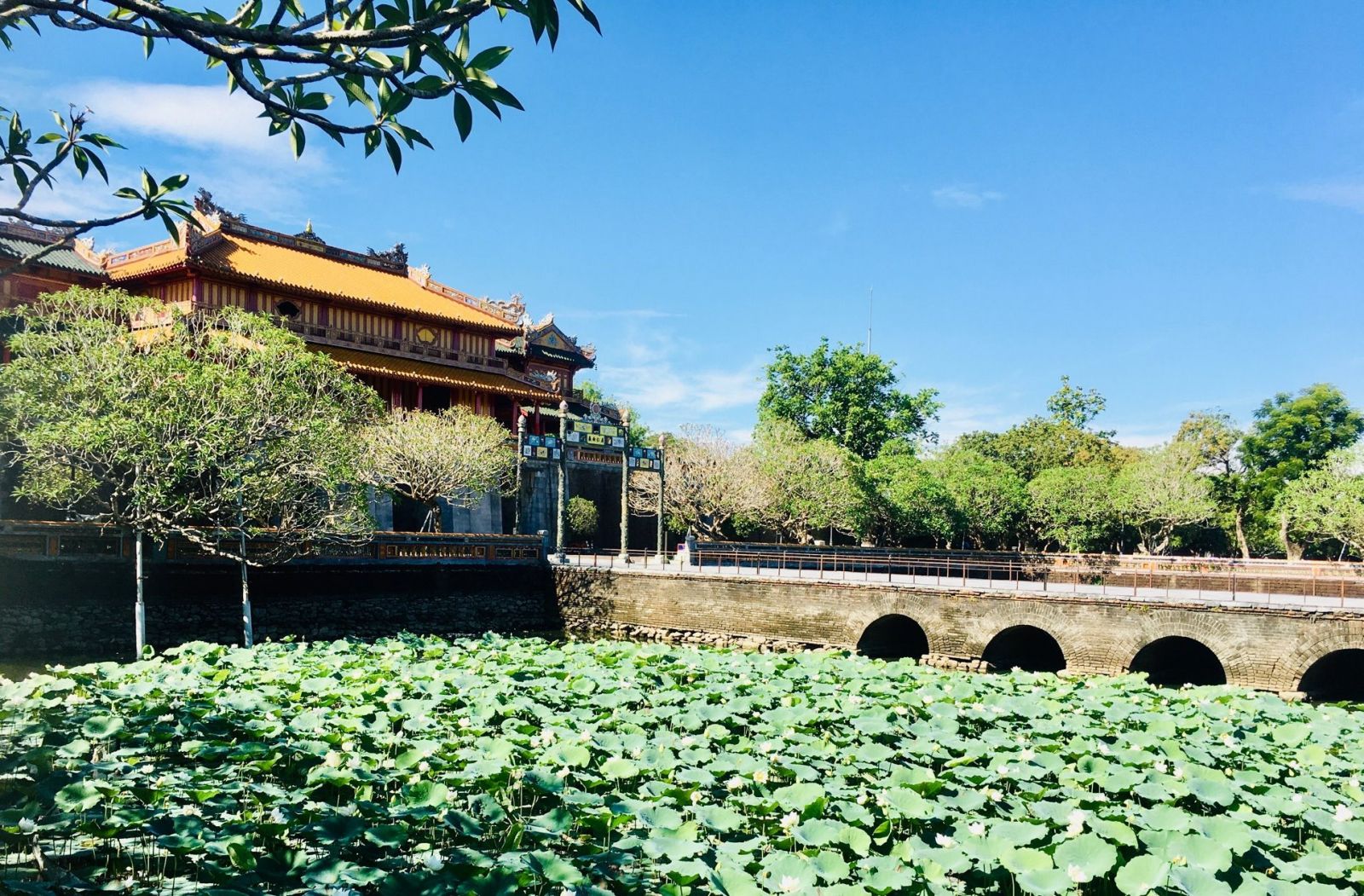
Hue Imperial Citadel. Photo: N.H
"The sword represents a prosperous, peaceful and happy nation and is decorated with embedded precious stones, engraved details and a lotus-shaped grip," the auctioneer described. It is known that on the handle of the sword is engraved the words "Royalty of Thanh Thai".
On the occasion of the auction of the sword being said to have belonged to Emperor Thanh Thai, I recall an event which happened 4 years ago. A diamond-encrusted Rolex watch, introduced as “belonging to His Majesty Bao Dai, the last emperor of Vietnam”, achieved a world record at the auction in Geneva (Switzerland) with the selling price of USD 5,060,427.
European newspapers at that time reported that the former emperor Bao Dai had bought this watch in 1954. Previously, it was auctioned for the first time in 2002 for 370,000 Swiss francs, a record figure at that time.
Hue is the converging land of many cultures, such as Dong Son, Sa Huynh, and Champa. This place was once the capital of Dang Trong (the Inner Realm of Vietnam). Especially, since becoming the capital of the unified country under the Nguyen Dynasty, this land was the gathering point of talented human resources and material resources, where the country’s riches and treasures were concentrated.
However, over time, especially due to historical changes, hundreds of antiques and treasures of the Nguyen dynasty's royal court from the land of Hue ancient capital were scattered. Many of them have made their way around the world or have "gone missing".
Pastor Père Siefert, who witnessed the fall of the capital (July 5, 1885), said that compared with the inventory of royal property made before July 5, 1885, the French had looted: "228 diamonds, 266 pieces of jewelry encrusted with diamonds, pearls and gems, 271 gold items in Empress Dowager Tu Du's palace... At the temples worshiping emperors Gia Long, Minh Mang and Thieu Tri, most of things that could be carried away, such as crowns, belts, carpets, court clothes, etc., were all stolen. Most of the wealth in the royal palace of the Nguyen Dynasty and also in the Hue nobility was plundered by the French and brought back to France.”
Antiquities and treasures associated with the Nguyen Dynasty in particular and the history of Vietnamese dynasties in general have been appearing in museums and international exhibitions, especially at auctions.
Also at an auction in France more than 5 years ago, through the State budget and the contribution of overseas Vietnamese in France and Hue culture lovers, a piece of Nguyen Dynasty antiques - the rickshaw ordered by Emperor Thanh Thai as a gift for his mother, Empress Dowager Tu Minh, for her to stroll in the royal garden – which had wandered for hundreds of years abroad, returned to its homeland. The rickshaw was manufactured around the beginning of the 20th century, by Hoang Hung workshop in Hanoi.
Recalling and appreciating the efforts to bring home the rickshaw that Emperor Thanh Thai ordered as a gift for his mother, researcher Nguyen Xuan Hoa said that it is advisable to launch a support fund to bring Nguyen Dynasty artifacts back to the ancient palace. Along with the policy of encouraging contributions, it is necessary to have a strategy to buy antiquities to enrich our cultural assets. Indeed, this is a sound recommendation!
By DAN DUY
